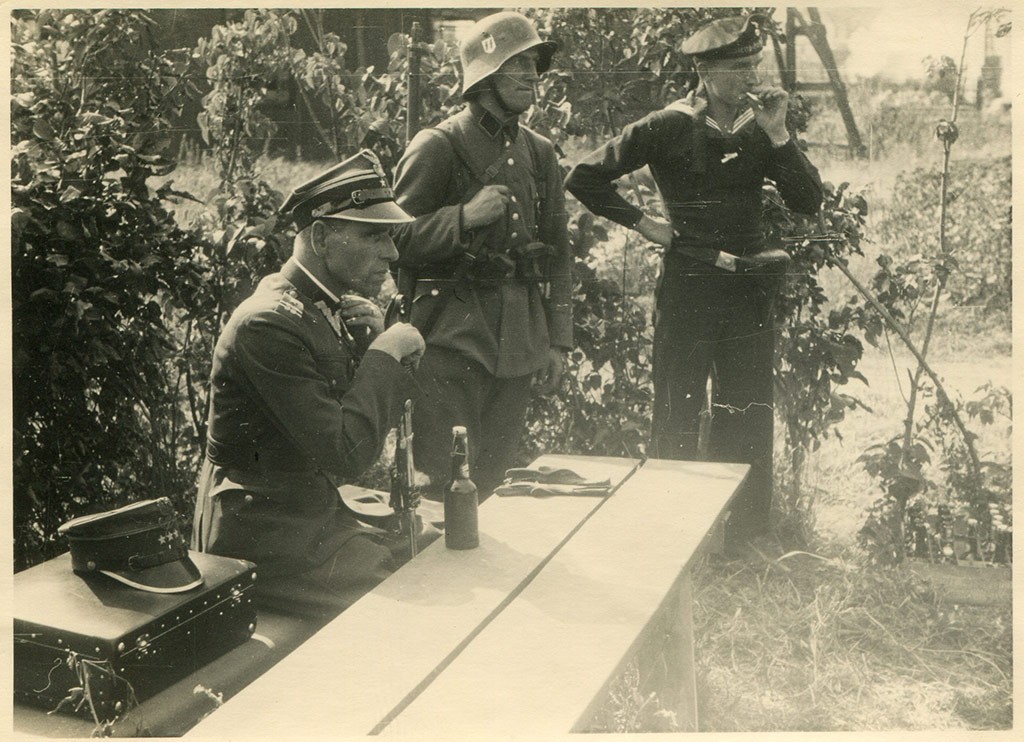At 04:30 hours on the seventh day of the attack on the Military Transit Depot, the German warship Schleswig-Holstein began to shell Westerplatte again. Half an hour later, the German infantry attacked, but was forced to retreat. A renewed attempt to set fire to the forest failed. German heavy mortars joined in the assault, eliminating Guardhouse nr. 2 from the defence. To the Polish defenders, further fighting appeared to be pointless. All ammunition was expended. Moreover, the wounded in the cellars of the barracks were in deteriorating condition. Wound-dressings and medication were in short supply or lacking. Major Sucharski decided to surrender. The soldiers gathered in front of the barracks for their last roll call, and then marched off to captivity. The Germans transported the wounded to hospitals in Gdańsk. The Polish officers were taken to Hotel Centralny, and the non-commissioned officers and privates to a temporary prison in the fortress on the Bischofsberg (today: Biskupia Góra). In recognition of his valour, Major Sucharski was allowed to carry his sabre in captivity. During the defence of Westerplatte, 15 Polish soldiers were killed and 26 wounded (although these figures may be incomplete). The German losses were estimated at 50 dead and 121 wounded.
